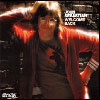JOHN SEBASTIAN : WELCOME BACK
- Hideaway
- She's Funny
- You Go Your Way and I'll Go Mine
- Didn't Wanna Have to Do It
- One Step Forward, Two Steps Back
- Welcome Back
- I Needed Her Most When I Told Her to Go
- A Song a Day in Nashville
- Warm Baby
- Let This Be Our Time to Get Along
Label : Reprise Records
Release Date : April 19, 1976
Length : 32:55
Review (Wikipedia) : Welcome Back is an album by American singer/songwriter John Sebastian, released in 1976 (see 1976 in music). It reached number 79 on The Billboard 200 chart. Two singles were released from the album with the title song "Welcome Back" reaching number one on the Billboard Hot 100 and Adult Contemporary charts. It also reached number 93 on the Country Singles chart. The second single, "Hideaway" peaked at number 95 on the Billboard Hot 100. Following the commercial failure of his 1974 album Tarzana Kid, Sebastian owed one more record on his contract with Reprise Records. When his theme song for the television series Welcome Back, Kotter became a hit, Reprise wanted an LP to capitalize on the song's success. With his contract fulfilled, Reprise dropped him from the label.[1] It would be seventeen years before Sebastian's next studio album was released. In his retrospective Allmusic review, critic William Ruhlmann called Welcome Back "…an uneven collection filled out with a near-instrumental ("Let This Be Our Time to Get Along"), a folk-blues song he'd written in the early '60s ("Warm Baby"), and a remake of one of his old Lovin' Spoonful songs ("Didn't Wanna Have to Do It"). The new material tended to be craftsman-like pop songs, the melodies simple and catchy, the lyrics light verse.
Review (AllMusic) : John Sebastian's relationship with Reprise records cooled after the commercial failure of his 1974 album Tarzana Kid, but he still owed one more record on his contract when his theme song for the television series Welcome Back, Kotter became a surprise hit in the spring of 1976. Reprise, naturally, called for an immediate LP tie-in, and Sebastian obliged. But he didn't really have an album's worth of top-flight tunes ready, and the result was an uneven collection filled out with a near-instrumental ("Let This Be Our Time to Get Along"), a folk-blues song he'd written in the early '60s ("Warm Baby"), and a remake of one of his old Lovin' Spoonful songs ("Didn't Wanna Have to Do It"). The new material tended to be craftsman-like pop songs, the melodies simple and catchy, the lyrics light verse ("You Go Your Way and I'll Go Mine," "One Step Forward, Two Steps Back," "I Needed Her Most When I Told Her to Go"). Employing the soon-to-be Toto rhythm section of David Hungate and Jeff Porcaro, Sebastian had a solid backing when he ventured into island syncopation on "One Step Forward, Two Steps Back," and Jeff Baxter gave him some convincing pedal steel playing on "A Song a Day in Nashville," the only song that really cut deeply, painting a portrait of a struggling songwriter on the rebound who easily could have been Sebastian himself. Then, of course, there was "Welcome Back," a pleasant-enough tune whose endless repetitions of its title betrayed its origin as a brief TV theme song. It was the biggest hit of Sebastian's career, but unfortunately, with his contract up, Reprise had little reason to work to sustain his comeback, and, amazingly, he quickly went from being a man with a number one record to a man without a record label.
